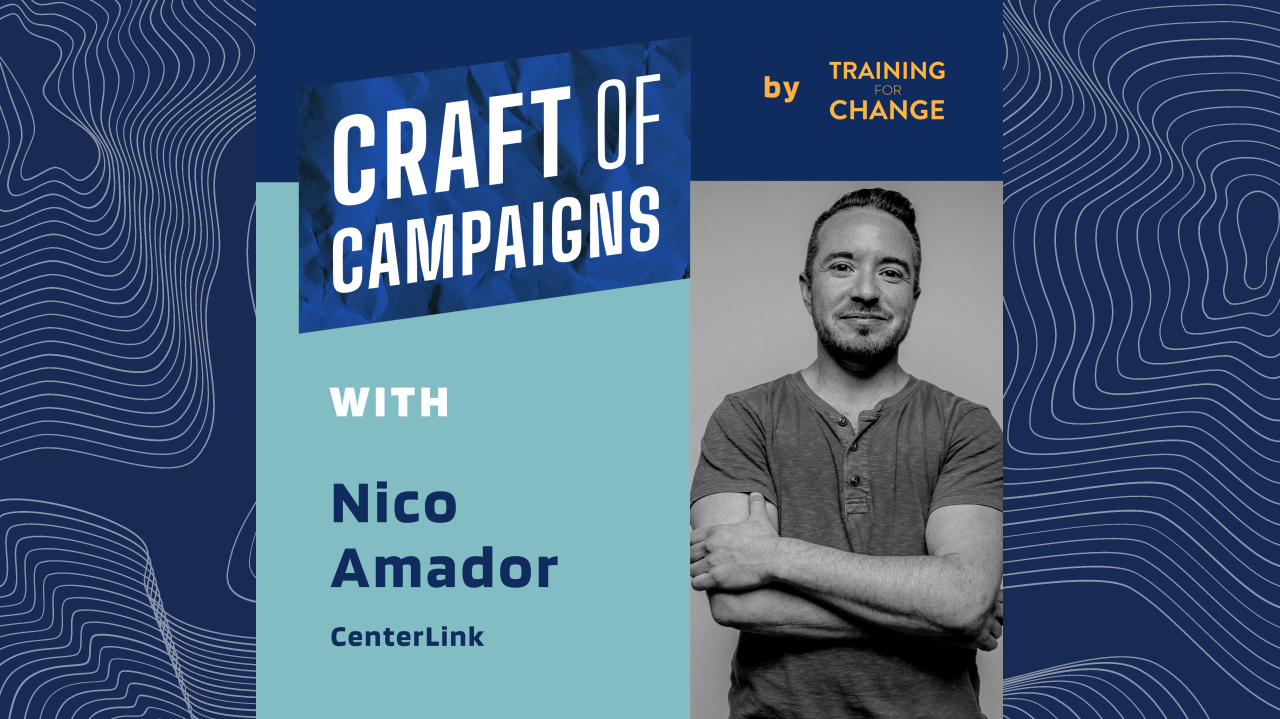We often learn about direct action campaigns through examples with a linear path to victory, like the desegregation effort at the heart of the Montgomery Bus Boycott. But it’s much more common for our campaigns to stall out on the way to a win, requiring strategy shifts or a long fallow period, as was the case for many of our stories from the past two seasons: the Penn for PILOTs campaign, KC Tenants’ pandemic pivot to shutting down court hearings, and undocumented organizers moving away from a longtime goal to win a US Senate vote.
Today’s story, from 2012, also went through a “stuck period,” before eventually ending a policy that had made Philadelphia’s transgender transit riders less safe. And like some of those same campaigns mentioned above, this one highlights what an all-volunteer leadership team with a flexible attitude towards its “North Star” goals can accomplish.
At the time, the transit agency, SEPTA, offered riders the opportunity to buy cheaper, monthly transit passes that could be used across the area’s buses, trolleys, and subways. But the passes were marked with a large “M” or “F” – male or female.
This created situations where local trans and gender non-conforming riders, particularly Black trans women, were interrogated and harassed while boarding. A few prominent local trans leaders had spoken out about the problem over the years, but the issue received little mainstream attention. Finally, after another such incident in 2009, a queer teacher who had been involved in other local issue campaigns, Talia Young, invited a few local activists to her home, convinced they could do something about SEPTA’s policy.
After a few weeks of researching the issue, the group was in agreement: a public campaign could force the agency’s general manager to agree to phase out the M/F gender markers. They named their new formation Riders Against Gender Exclusion, or RAGE.
The group started raising the issue with influential queer community members in the summer of 2009, hosting a happy hour to set the stage for the public campaign to come and invite passive support. And they began quietly circulating a petition asking SEPTA to end gender markers, emphasizing in-person conversations with queer and trans people at public gathering spaces and dance parties.
“We didn’t think necessarily that the signatures themselves were gonna be the thing that created a lot of influence in the situation, but what it did do is it got us out talking to people about this problem and helped us really start to build the base around the campaign,” Nico Amador told me in our interview, who along with Max Ray-Riek became one of the group’s two coordinators. “One of our flyers read, ‘What’s in your pants? SEPTA wants to know.’”
They also collected testimonies of trans riders who had felt unsafe, and once they had about two dozen, RAGE asked SEPTA for a meeting. When they sat down together that October, SEPTA leadership declined to take their concerns seriously. “It was a typical delay tactic,” Nico said, “Like, ‘we hear you, we understand your concerns. We’re probably gonna be switching to a new fare system in the near future anyway. These passes are going to become irrelevant, so don’t worry about it.’” To some of the group members, “it felt like a win, and for others, it was disappointing to not get a solid commitment.” SEPTA promised to implement a system for collecting rider complaints, but six months later, still hadn’t followed through.
Max and Nico, as the campaign’s experienced organizers, thought they would need to bring more disruptive pressure to bear. They decided to stage a public drag show at City Hall Station in March 2010. “At the core of it, in terms of like the actual design of action, it was basically a rally,” Nico says in the interview. “It was people showing up with signs to protest something. But we were really trying to give it a little bit more narrative weight and a little bit more kind of like playful spirit, something that would generate interest.” After engaging with transit riders, a few of the groups’ members performed spoken word poetry, Nico and Max performed, with Max dressed as SEPTA general manager Joe Casey. At the action, the group announced their own rider complaint system, complete with a hotline for trans and gender non-conforming riders to call.
The drag show generated a significant amount of positive press coverage, with more and more influential Philadelphians weighing in on the unfairness of the gender sticker policy. The group had dramatically raised public awareness of the problem, and had mobilized dozens to actively support the campaign. But SEPTA continued to ignore them.
“We thought maybe at that point that the public transportation officials would give at that point and say like, ‘all right, fine we’ll figure out how to get rid of it.’ And they didn’t. That did feel a little demoralizing,” said Nico. At that point, it had been two years since their first meeting at Talia’s house. The group’s meeting participation began to dwindle.
“We felt stuck.”
But after consulting other strategists in Philly’s movement ecosystem, and reflecting on what the people active as RAGE’s base were communicating to them, they had two significant insights that allowed the group to make a big pivot.
Reflecting on their disruptive approach, Nico and Max realized many of RAGE’s members, who were new to campaigning, didn’t share their eagerness for direct action or dramatic spectacle. “Many wanted to build community, and were rightfully worried about what risks they would be taking” with continued public actions. “I personally was really motivated by a direct action strategy because I was coming into this campaign with training as an organizer with a curiosity and interest in non-violent direct action,” he said. Many of the group’s active supporters “just wanted to be around other people,” motivated by social connection and a desire to be creative together.
And they had a strategy breakthrough. Even if SEPTA didn’t change the policy, they thought, “what if we can ensure that trans and non-binary people are safer when they’re using public transportation, and that there are more people who previously would’ve just been passive bystanders who are ready to intervene and step in to help ensure people’s safety if they’re confronted as they’re using their pass… we freed ourselves from needing SEPTA to change the policy.”
RAGE developed the campaign’s final action arc, which they called Ride with Respect, centered on recruiting other riders to pledge to look out for and disrupt any harassment caused by the gender markers. They also circulated pledge cards through public outreach tactics, even marching with a cardboard “bus” in Philly’s first trans march. “That just felt really liberating for us to get to take some of the pressure off trying to really create the win or to have to stay so focused on the target at that moment.”
They began that winter 2010 sequence by hosting a community forum for trans and gender non-confirming SEPTA riders to generate a “Riders’ Bill of Rights,” drawing on the contacts they had gathered through petition- and testimony-gathering.
They printed it up on easel pad paper and took it to a SEPTA budget hearing. “We invited the press, we took our giant bill of rights to this public meeting. We interrupted the proceedings and took the mic and did a kind of short intro to, here’s who we are, here’s why this issue matters to us.” The press attention energized the group, whose organizing meetings were drawing twenty active participants at the time.
Nico credits the group’s more decentralized and creative attitude towards strategy development in this period that ultimately led to the campaign’s victory. “The core of our group was kind of focused on this Ride with Respect campaign, but we had encouraged people to do the things that they wanted to do.” One person who attended RAGE meetings had experience lobbying local elected officials, and decided, on her own, to ask City Council members to sponsor a nonbinding resolution calling on SEPTA to drop the gender stickers.
Somewhat improbably, not only did her direct outreach result in meetings with elected officials and a subsequent vote by the council, but shortly thereafter, SEPTA announced it was acceding to the group’s demand. “One person taking the initiative to do something that maybe was a fairly obvious move at the time, but that we had disregarded or just had somehow decided that that was not the tactic we were gonna use at that time, seemed to be the final thing that produced the win,” Nico said. “I think there was something that was kind of humbling and also a little delightful about that. We wanted people to feel empowered. We wanted people to feel like they could take circumstances into their own hands and that they could produce the changes that they wanted to see through the actions that made sense to them.”
Listen to the full interview for his reflections on additional lessons applicable for today’s direct action campaigns.
Nico Amador has spent over twenty years in social change movements as a community organizer, facilitator and coach for grassroots leaders working for queer liberation, racial justice and trans rights.
His prior work has included participation in efforts to fight mass incarceration, secure protections for undocumented immigrants, and campaigns for a living wage. As the former Executive Director and lead trainer with Training for Change, he founded a fellowship program for BIPOC organizers and led hundreds of workshops to promote skills and analysis among people working for social change. He’s supported several major LGBTQ+ and gender justice organizations, including the National LGBT Task Force, Planned Parenthood of Southern New England, the Trans Justice Funding Project, the Third Wave Fund and the Transgender Law Center, and many local projects across the U.S. He is currently the Director of the Leadership Institute at CenterLink, an international member network of LGBT Centers.

